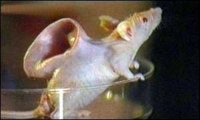@Grace it's not about scientists, it's about VCs & Pharma corporations, those are the people who decide what problem is worth being tackled (when it's expected to be financially viable). The good thing is that it works like an economic bubble once one is investing on a cure, all competitors follow just to make sure not to lose a competitive advantage. This is why we are seeing a burst of money since 2013 being invested in finding a cure for T.
Plus most health NGO are forecasting the problem to become major, it's a major problem for veteran, and the US gov is losing a shit lot of money because of T. So everyone is getting more & more concerned.
It's more than likely that we see a cure or at least a viable relief by 2016/2017. And more & more options will become available by 2020.
A point we also forget is that Japan is working super hard on a cure too as their demographic is changing. Indeed the amount of people above 50 is sky rocketting. Japan actually sells more diapers for old people than for babies. T. is a dominant issue for this +50 generation, and the market is massive.
Ironically, I am kind of happy that I had tinnitus before it becomes something easily curable, this shit helped me to build a f**** tough mindset without the danger of some other more serious diseases!haha
Hi benryu,
another fact is also, that major pharma running out of their patents. So they need new markets.
Tinnitus and Hearing Loss would be in every case a huge blockbuster, also just they would have a medications
with 20% of effacy.
The outomes of Auris Medical and also Novartis/Genvec will show, if they are on the right way.
But it's hardly to imagine, that this field will stop, it will increase with the power of
computers and also possibilities of growing and testing tissue and their functionality in dishes.
Greets Tom

 Member
Member
